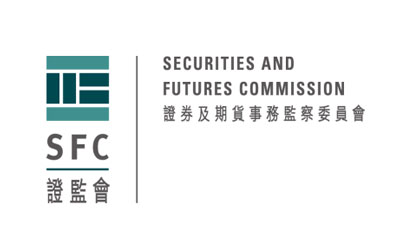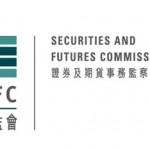SFC reprimands and fines three JP Morgan entities a sum of $30 million for regulatory breaches

The Securities and Futures Commission (SFC) has reprimanded J.P. Morgan Broking (Hong Kong) Limited (JPMBHK), J.P. Morgan Securities (Asia Pacific) Limited (JPMSAP) and J.P. Morgan Securities (Far East) Limited (JPMSFE) (collectively “JP Morgan”), and fined them $15 million, $12 million and $3 million respectively for various regulatory breaches and/or internal control failings (Notes 1 to 3).
An SFC investigation revealed that JP Morgan had failed to implement adequate systems and controls in its institutional equities business in Hong Kong to ensure compliance with the rules and regulations applicable to the following areas:
- short selling activities;
- client facilitation and principal trading business; and
- operation of dark liquidity pool trading services.
Short selling activities
Between May 2010 and February 2013, JPMBHK and JPMSAP had incorrectly aggregated the inventory positions controlled by a principal trading desk across two offshore affiliates in determining whether their position in a security is net long or net short. As a consequence, the two firms wrongly conducted over 41,000 uncovered short sale trades as long sale trades (Notes 4 & 5).
Furthermore, contrary to the requirements under the Securities and Futures Ordinance (SFO), 34% of the short selling orders placed by JPMBHK and/or JPMSAP for their principal trading in May 2012 did not have the appropriate “documentary assurance” in place to confirm that the sales were covered when the short sell orders were placed (Note 6).
Client facilitation and principal trading business
A review by the SFC found that, between January 2011 and December 2012, JPMSFE and JPMSAP did not have adequate systems and controls in place to prevent a client facilitation trade being executed without the client’s consent.
The SFC also found that JP Morgan granted seven facilitation traders and 14 principal traders incorrect access rights under its network shared drives and/or order management systems between January and December 2012. As a result, the facilitation and principal traders were able to view client order flow information beyond their defined access rights.
Furthermore, JP Morgan had set up a reporting structure with potential conflicts under which the trading desks responsible for handling agency orders had a reporting line to two senior managers who were also facilitation traders prior to August 2012. However, JP Morgan did not put in place effective systems and controls to guard against potential misuse or abuse of client agency order flow information by the facilitation traders.
Operation of dark liquidity pool trading services
In April 2011, the SFC granted approval to JPMBHK to carry on business in Type 7 (providing automated trading services) regulated activity. During and after the application process, JPMBHK represented to the SFC that its client-facing crossing engine, namely JPMX, was a pure agency-to-agency matching platform.
The SFC however found that numerous principal orders of JP Morgan were incorrectly routed into the agency pool of JPMX for matching between March and July 2012 due to human and systems errors. None of these orders were crossed in JPMX. There were also a number of instances where agency orders were incorrectly routed on two dates in August and December 2012 into a separate, non-client principal pool of JPMX. Some of these agency orders were crossed with principal orders in this separate pool but none of them were executed at a price lower than the prevailing best bid (for sell orders) or higher than the prevailing best ask (for buy orders) price of the Stock Exchange of Hong Kong Limited.
Many of the above failings were not identified or corrected until the SFC brought them to JP Morgan’s attention in the course of a SFC inspection into the business activities of JPMBHK and JPMSFE.
In determining this disciplinary action, the SFC took into account that JP Morgan:
- co-operated with the SFC in resolving the SFC’s concerns;
- has taken steps to rectify the concerns raised by the SFC;
- agreed to engage an independent reviewer to conduct a forward-looking review of the internal controls and systems of JP Morgan in respect of the areas mentioned above; and
- has a clean disciplinary record in relation to its regulated activities.
End
Notes:
- JPMBHK is licensed under the SFO to carry on Type 1 (dealing in securities), Type 2 (dealing in futures contracts), Type 4 (advising on securities), Type 5 (advising on futures contracts) and Type 7 (providing automated trading services) regulated activities. JPMBHK is also an Exchange Participant registered with The Stock Exchange of Hong Kong Limited (SEHK).
- JPMSAP is a registered institution under the SFO to carry on business in Type 1 (dealing in securities), Type 4 (advising on securities), Type 6 (advising on corporate finance) and Type 7 (providing automated trading services) regulated activities.
- JPMSFE is licensed under the SFO to carry on Type 1 (dealing in securities), Type 4 (advising on securities) and Type 6 (advising on corporate finance) regulated activities.
- In Hong Kong, “naked” or “uncovered” short selling is prohibited under section 170(1) of the SFO.
- Under section 8.3 of the Guidance Note on Short Selling Reporting and Stock Lending Record Keeping Requirements published in March 2003, it is acceptable for an organisation to aggregate the positions of its proprietary trading units/books to determine whether its position in a security is net long or net short. However, this is limited to aggregating different trading units/books within the same legal entity. It does not extend to the aggregation of the positions of the trading books held under separate legal entities even if they are within the same group of companies.
- Pursuant to section 171(2) of the SFO, when passing a short selling order to an agent for execution, the short seller must, at the same time, provide the agent with a “documentary assurance” that: (a) he has a presently exercisable and unconditional right to vest the securities to which the order relates in the purchaser of them; and (b) where the securities have been borrowed to cover the sale, that the lender has the securities available to lend to the seller. Section 171(3) of the SFO also provides that where an Exchange Participant conducts a short selling order as a principal, and if the “cover” for the sale is a borrowing arrangement, the Exchange Participants must have obtained a documentary assurance from the lender that the lender has the securities available to lend to him before conveying the orders to SEHK.
Source: SFC – SFC reprimands and fines three JP Morgan entities a sum of $30 million for regulatory breaches



























